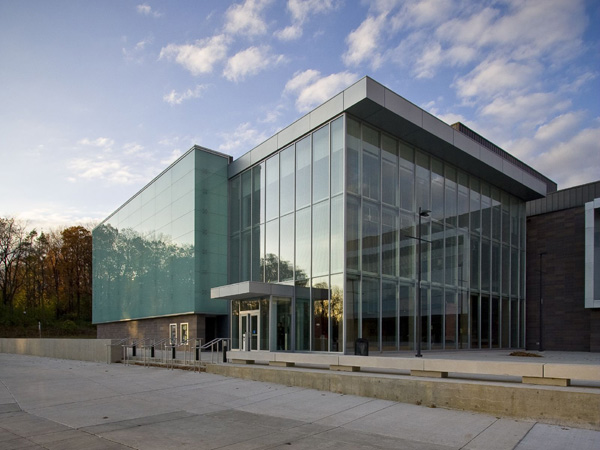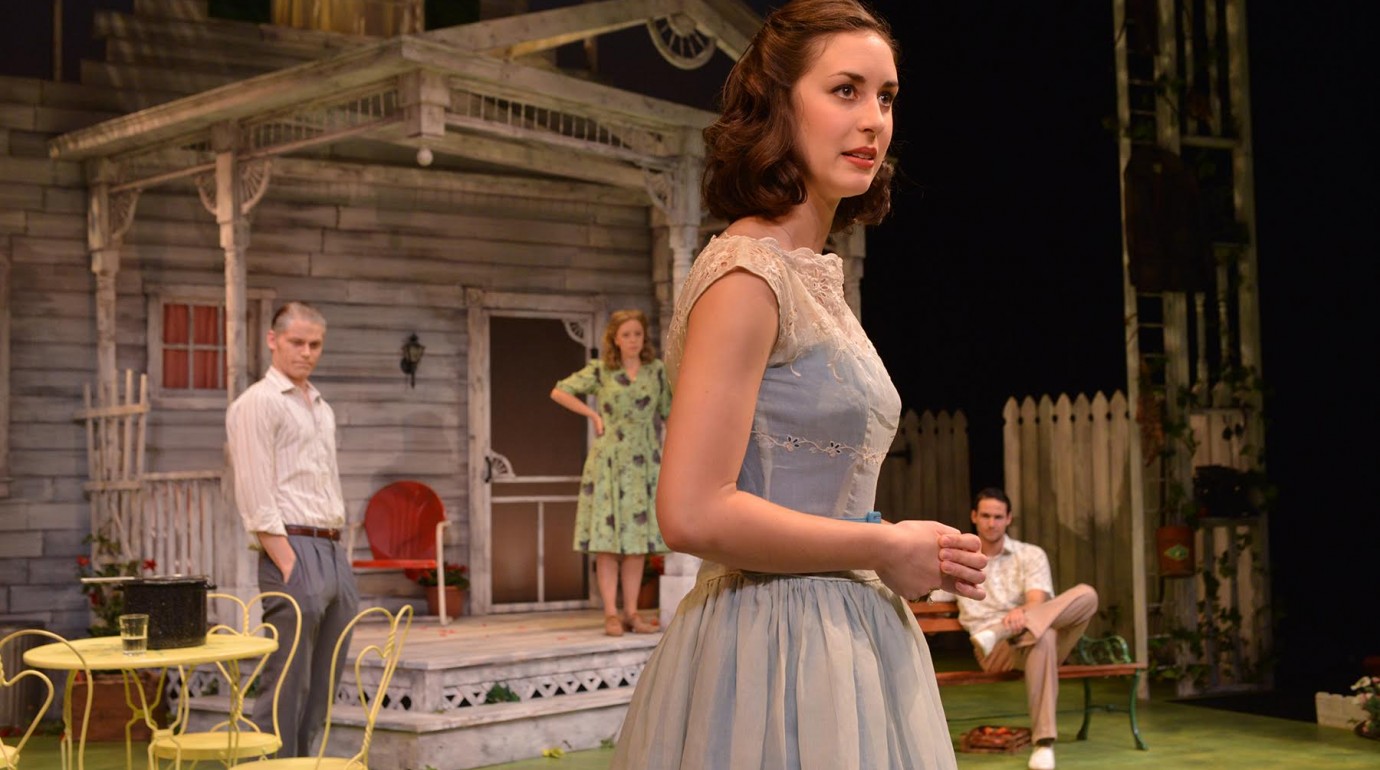ANN ARBOR, MICH.: In 1953, the editor of Holiday magazine sent Arthur Miller, already a well-established playwright with three Broadway credits, on assignment to Ann Arbor, where Miller had attended the University of Michigan nearly two decades earlier.
“In many ways,” he later wrote, “the campus was unrecognizable.”
Plenty had changed following Miller’s graduation in 1937. The GI Bill had opened the university’s doors to thousands of servicemen clamoring for a place in America’s widening middle class (Miller had subsidized his own education by feeding mice at the school’s genetics laboratory, among other menial jobs), and the specter of McCarthyism was already darkening the offices of the student paper where he had once served as night editor.
Miller has long since gone from Ann Arbor—when he died in 2005, it was at his family’s home in Roxbury, Conn.—but his head remains. Or at least, its facsimile does, cast in pewter, abstracted (but recognizably bald) and tucked away in a Plexiglass case beneath the grand stairway of the Walgreen Drama Center, home to the university’s Department of Theatre and Drama. The sculpture, installed in 2007, keeps watch over the lobby of the Arthur Miller Theatre, the university’s newest performing arts venue and the only theatre in the world to bear the playwright’s name.
“That’s exactly how he wanted it,” says Priscilla Lindsay, department chair. (“The theatre is a lovely idea,” Miller wrote in fall 1997. “I’ve resisted similar proposals from others, but it seems right from Ann Arbor.”)
Lindsay, herself a Michigan graduate, will be overseeing Theatre 100 (Oct. 8–18), a two-week celebration to commemorate the university’s century-old theatre department and honor the hundredth-year anniversary of the playwright’s birth. Among the festivities—carefully timed to coincide with the famously football-crazed university’s homecoming weekend—are a host of symposiums, panels, and conferences in which Michigan professors and alumni plan to discuss Miller’s influence and legacy.
“Miller’s a canonical writer—he’s one of the Big Three, along with Williams and O’Neill—and he’s a part of our legacy,” says Michigan professor Enoch Brater. “He’s a writer that everybody knows. Everybody reads Death of a Salesman in high school, or The Crucible. They’re a part of our cultural legacy, our shared American vocabulary.”
Brater, who interacted with Miller on a number of occasions while he was still alive, will be delivering the centennial’s keynote address on Oct. 14. “We enjoyed a relaxed relationship,” says Brater. Like Miller, he’s an alumnus of Abraham Lincoln High School in New York, and Miller once worked in the same Navy yard as Brater’s father.
“I’m going to talk about the situation of Miller productions today and where they’re likely to go in the future, keeping in mind the input a whole series of imaginative directors today,” Brater says of his keynote, invoking Simon McBurney and Ivo van Hove, the Belgian director whose acclaimed Old Vic production of A View from the Bridge makes its Broadway debut later this month.

Though Miller’s plays are usually taught alongside the historical contexts in which they were written—we likely have Miller and his Crucible to thank for our popular conception of the McCarthy trials as “witch hunts”—Brater is keen to point out the currency of Miller’s plays in the 21st century.
“When you think of something like View from the Bridge, which is about illegal immigration, what could be more in today’s news than that?” he says. “Or you think of All My Sons, which is about corporate cheating, and then you read in the newspaper about Volkswagen…He puts his finger right on the issues that continue to circulate in our democracy today.”
Nor has the interpretation of Miller’s female characters remained unaffected by shifting values. “For a long time, Miller had been seen as this sort of ‘macho’ dramatist,” says Brater. “But in the way the plays were being performed during his later years, Miller began to recognize the strengths of these female characters—Kate Keller [in All My Sons], and Ann [Deever], and Linda Loman—and see that he had written these very, very strong women.”
Wendy C. Goldberg, artistic director of the National Playwrights Conference at Connecticut’s Eugene O’Neill Theater Center, agrees. “The women in his works are some of the strongest women ever written,” she says. “Kate Keller is given the last lines of this play—like a great Shakespeare play, the final speaker is assumed to be the one who will be the successor, and indeed in this domestic world it remains true.”
Goldberg, who left Ann Arbor in 1995 with a dual degree in theatre and comparative literature, returned this fall to direct the university’s first production of All My Sons (Oct. 8–18), which coincides with the centennial celebration. “As [Miller] himself has put it, ‘There were far more important things to do in the world’ than write plays—but this play, influenced in a profound way by the Greeks and Ibsen, was successful, and allowed Miller to go on and write some of the most important plays of the 20th century,” she says. “To direct Miller in the only theatre in the world named after Miller, at a place that has shared this meaning for both of us…is a gift I will always treasure.”
In the years before commercial air travel and superhighways, writes Brater in Arthur Miller’s America, “it took a long time [for Miller] to get from New York to southeastern Michigan. But once he arrived in Ann Arbor after a circuitous bus ride and a hitchhike, he said, quite simply, ‘I felt at home.’”
And were the playwright to return this weekend—perhaps as one of the countless Michigan alumni who will throng its campus for its homecoming celebrations—it’s difficult to imagine that he’d feel anything but.


